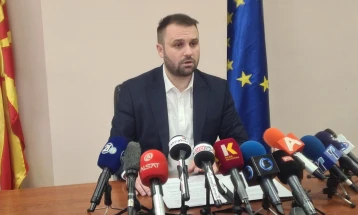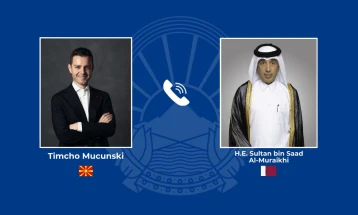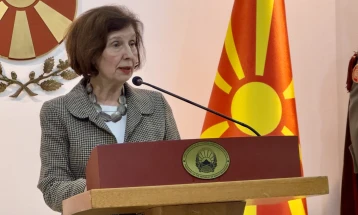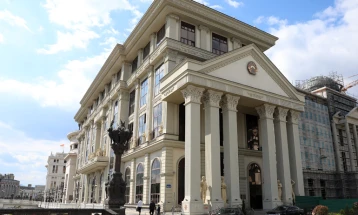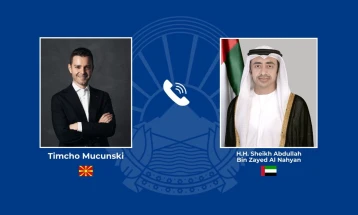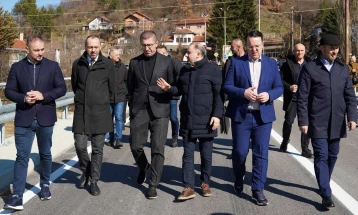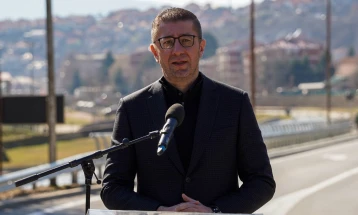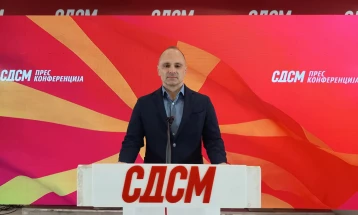Bilateral misunderstanding shouldn’t hinder EU integration processes, says former RCC head
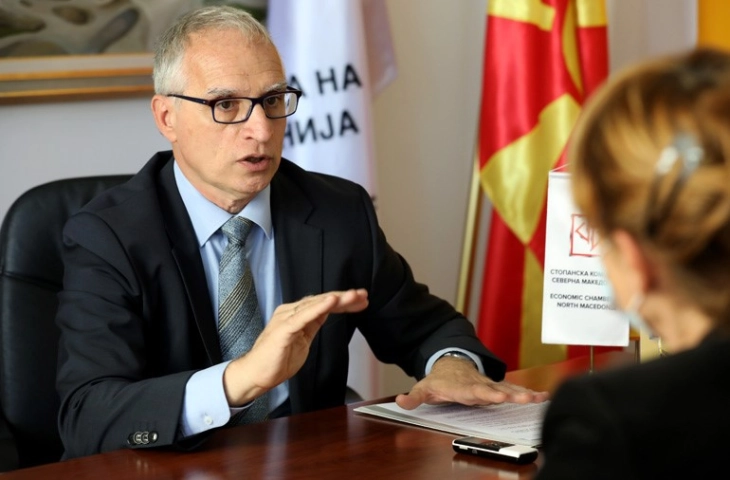
Skopje, 27 October 2021 (MIA) – I have great expectations that after Sofia forms a new government, the dialogue will be reopened and a compromise will be found. It is key. Everyone in the region was thrilled when one of the three major issues was removed, I mean the Prespa Agreement. I’m surprised that it has come to a standstill. I hope Bulgaria will get a new government in full capacity in order to sit down with its partners in Skopje and say: “Let’s seek solution”, Goran Svilanović, former secretary general of the Regional Cooperation Council (RCC), says in an interview with MIA.
Bilateral misunderstanding must not be used to block the EU integration process, urges Svilanović, a former Serbian diplomat who currently serves as councilor for regional affairs to Economic Chamber President Branko Azeski.
According to him, the country is in a sense victim since it had made bold steps to move forward, but it is yet to be approved a date to open negotiations with the European Union.
“A major step had been made, which wasn’t met with what it was supposed to – a date to open negotiations. I think it only further contributed to deepening the mistrust of some of the people living here. It is necessary and important to encourage everyone who will lead the country now or tomorrow – they should know that on the other side they have a partner in the EU who’ll say: ‘That’s ok, we’ve agreed that and we’ll respect it’. Unfortunately, there was no encouragement, which I’m very critical of, I have to say. At the moment, trust is weaning. A promise wasn’t met while the conditions are met,” Svilanović says.
In MIA’s interview, he also talks about the Open Balkan initiative stressing that it doesn’t serve as a competition to the Chamber Investment Forum (CIF) or to force upon new and different agenda. On the contrary, all CIF member states are welcome as North Macedonia, Serbia and Albania are facing certain open issues to be able to improve their economies faster and more efficiently.
“People want to see concrete benefit from the cooperation – in transport where trucks are still queued or in freedom of trade with services. If you own a dental office in Skopje, you should be also able to open an office anywhere in the region without having to complete additional procedures and you should be able to have your qualifications recognized. These things have to be put into operation. Currently, there’s no progress. Why’s that? Because sometimes it requires many laws to be changed and what’s often the case, there is no solution to certain issues, such as the Belgrade-Pristina dialogue. Here in fact lies the introduction into the story regarding Open Balkan. It is the real reason behind this initiative. No other agenda is being promoted. The goal is to move faster all the while being opened for the others. That’s why I see no competition between CIFG and Open Balkan. The thing is that these three countries shouldn’t wait, should move a little faster while being opened for the others. The others should see whether these three countries have agreed and are doing something useful, and when they do, they should say ‘let’s doing too’,” explains Svilanović.
As Western Balkan countries are increasingly becoming focused on a single regional market and on strengthening their cooperation in various fields, the former diplomat doesn’t believe it could result in the re-establishment of Yugoslavia. The people in the region, he stresses, are not ready to take a step back and no one is considering it.
“I heard it before as a criticism – “they want to unite in Yugoslavia”. This is not the idea, no one is making Yugoslavia. People living in the region had fought for independent, sovereign and their own countries. Each and every one of the countries has been committed to joining the EU. But, alongside this dream, real life takes place. Let’s talk openly. Life takes courses which somehow put aside the politics of major powers. Our reality involves a single market although there are obstacles that need to be eliminated,” Svilanović says.
In MIA’s interview, Svilanović reveals that the second meeting of the Open Balkan initiative will take place in early November in Belgrade and that the chambers of commerce of Western Balkan and Visegrad Group countries are planned to meet in Budapest.
